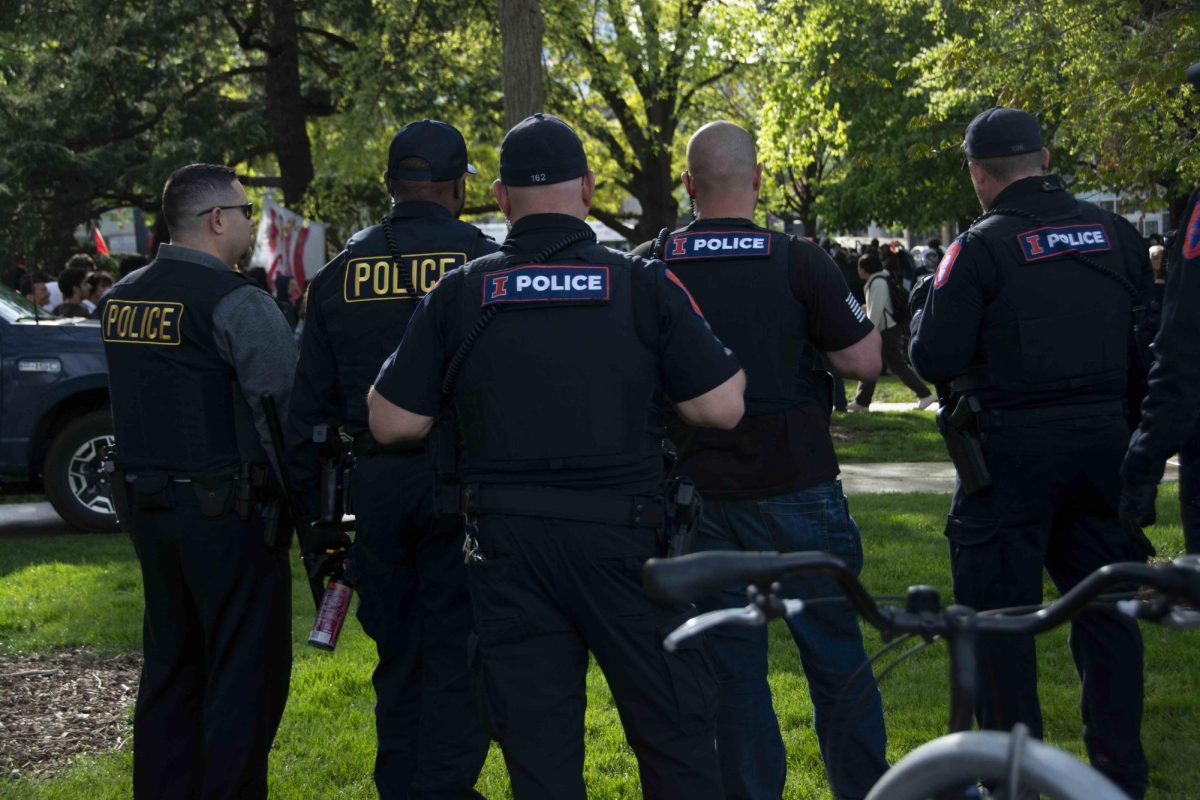This article has been corrected from an earlier version.
Down five from their usual staff of 55, the Urbana Police Department will hire three more officers in January and reassess in June as to whether the city needs to make additional cuts because of a budget shortfall.
If so, hiring two more officers will be postponed until the city can get back on track with the budget. Citywide, about seven vacancies are being held.
“We’ve been at 55 for less than three years or so,” said Mike Monson, chief of staff. “That was a big help and now we’re kind of going back the other way.”
The to-be-hired officers will train in January at the police training academy before it closes Dec. 31, 2011. They will be paid during the training period.
Get The Daily Illini in your inbox!
Urbana’s current budget doesn’t call for a salary increase this year, Monson said, but the idea is currently in negotiation.
“We’re pretty far apart,” Monson said.
He said the city could not afford the three percent salary increases that were given in the previous police contract. Urbana firefighters have already accepted a salary freeze for this year.
“We’re hoping they’ll accept a salary freeze like our other units,” Monson said. “That would be the best solution, otherwise we’re going to have to make some tough decisions about eliminating positions probably through attrition.”
If a freeze were not to be accepted, the case may need to be submitted for binding arbitration with both the city and the Fraternal Order of Police, an organization for sworn-in officers, submitting contract proposals. Both sides could also choose to carry on negotiations.
Anthony Cobb, assistant Chief of Police, said he finds the budget not to be the primary cause of difficulties with capacity, relating it to the turnover in administration.
This year also saw a number of high-level retirements, including the Police Chief and a lieutenant within the last two months, creating personnel shortages and leading to vacancies in entry-level positions.
“Part of the reason we hold so many vacancies is not so much because of budgetary issues but because of the transition in the last four months,” Cobb said.
Monson and Cobb have also said that overtime is one option that is being exercised.
“We’re not afraid to pay overtime to deal with the issues,” Cobb said. “Yes, it puts a burden on the guys that are here, but from a resident’s perspective, if they call for a cop, they’re going to get a cop.”
Newly minted Police Chief Patrick Connolly said the problem of understaffing has had the most impact in community policing programs, such as the Neighborhood Watch Program, and other outside programs — at schools, for example — that could have been tended to with more personnel.
Cobb also foresees difficulties ahead with the closing of the police training institute at the University, as the change will incur further expenditure. As of yet, an alternate academy has not been selected and will “need some coordination,” Cobb said.
The budget itself has seen little change from last year but is still under what Ward 1 council member Charlie Smythe said would be ideal.
“For the moment, (leaving vacancies) allows us to run at full strength but we’re basically at the point where there’s no room for error,” Smythe said. “We’re bare-boned. We can provide all our services pretty much the way we are used to.”
Whether or not the department will get back to full service will go undetermined until June. Fiscal year 2010 ends June 30.
“I hope that the pendulum starts swinging the other direction so we can get back to the kind of service our community looks for,” Connolly said.




